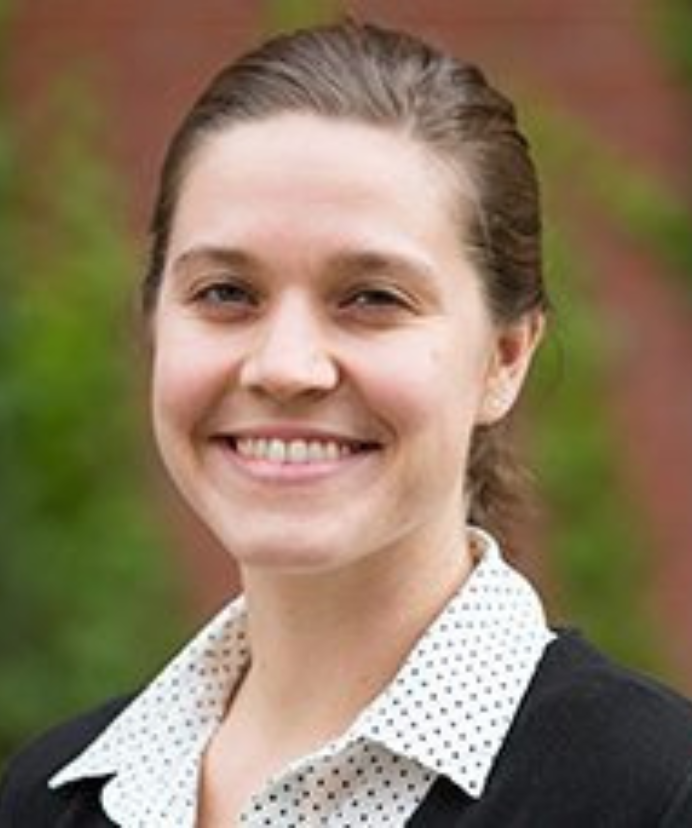Sarah Verbiest: Maternal & Child Health Leader
Sarah Verbiest has clear and ardent policy dreams for women and children which remain rooted in a fundamental commitment to health equity for all women.

Read Time: 6 minutes
Published:
Sarah Verbiest is a clinical associate professor at the University of North Carolina School of Social Work and the executive director of the School’s Center for Maternal and Infant Health.
Sarah Verbiest is a public health social worker. What does that mean? She joins dedication to disenfranchised populations with commitment to systems change, interweaving health policy and community practice to improve maternal and child health. She was drawn to this hybrid profession as a systems thinker and emphasizes public health social workers also “do a lot of work with people in systems.” Her conceptual attention to links, interconnections, and structure complements her focus on the experiences of people whose lives are entwined in public systems.
Sarah “never thought [she] would get a doctorate degree or that [she] would be an academic, ever” but in UNC’s DrPH program she found a doctoral program built on lived work experience which integrated her practice experience, research interests, and facility and desire to educate and train public health social workers.

Preparing for Policymaking
Sarah’s students and the public health social work community are fortunate she found this path given her passionate, informed, and engaging approaches to teaching, research, and policy making. Her own work in policy and public engagement with organizations like the March of Dimes convinced Sarah effective policy work relies on extensive training and support as well as experiential learning . She got hooked on policy as a path to improved public health and wellbeing through the exhilarating experience of seeing a policy succeed from inception to implementation. With the dedicated time, support, and training of her formal position with March of Dimes, Sarah was involved in drafting a bill, lobbying for its passage, and eventually seeing funding for her effort to ensure women had access to folic acid before pregnancy in North Carolina. That experience drove home for her that “when the process works well, and you’re working to build policy across difference, it’s great, and you really come up with good policy.”
Sarah underscores two key points about preparing and inspiring new policy influencers: big national policy is not the only way to bring about change, and comfort and skill in policy advocacy come with extensive training and support. When you frame policy as Sarah does, seeing its important place in state-level systems, local PTA organizations, and even organizational policies like hiring practices or responses to clients’ missed appointments, it’s that much more urgent to understand and encourage strong policymaking knowledge in public health practitioners. Sarah describes the impact of employer-supported training, experiential learning, and encouragement in reducing intimidation and clarifying how the policymaking process works: “it’s intimidating [but] I had support, people approving my content before it went out…people need training in order to feel comfortable engaging in policy arenas.”
Policy training and preparation through employers may be essential, but universities can play a role in preparing public health social workers to be policy influencers as well. Sarah’s students in classes on health policy and equity and non-profit management engage in in-depth policy learning through a day spent in the North Carolina assembly meeting with lobbyists, observing elected officials’ meetings, and familiarizing themselves with the state policy process. In true keeping with her commitment to seeing policy on many levels, Sarah has another class participate in a real local meeting with policy implications, like a city council, city planning, or school board meeting.
These learning experiences help students understand the context in which “these decisions [are] made, who is elected and what does that mean” and gives them concrete knowledge of local policymaking which can reduce the intimidation they might feel as new practitioners seeking to make policy change. Sarah described these learning experiences as sometimes “flipping the switch” for students who might not have pictured themselves as having a role in policy change, noting “you have to get in and try it, you can’t learn about it just from sitting at your desk.”
As her leadership of the Center for Maternal and Infant Health suggests, Sarah has clear and ardent policy dreams for women and children which remain rooted in a fundamental commitment to health equity for all women.
Policy for Women, Infants, and Families
True to the shared core commitments of social work and public health to working with and for vulnerable populations, Sarah’s reflection on her own work is focused outward, on her opportunities to improve the lives of women and children and support the success of new practitioners. She roots her focus on women and children’s health and wellbeing in a lifelong feminist perspective. As a young person, Sarah was passionate about women’s equal opportunities, from access to sports to pay equity to reproductive justice, and which she has always seen as issues to address through policy.
As her leadership of the Center for Maternal and Infant Health suggests, Sarah has clear and ardent policy dreams for women and children which remain rooted in a fundamental commitment to health equity for all women. If she could wish into being a single policy, Sarah would address post-partum health for women, encompassing 12 weeks of guaranteed paid family leave for every worker and providing significantly more support for new mothers and families, including “the best possible access to everything you would ever need as a new parent, seamlessly available, behavioral health, physical therapy, whatever you need, without copayments, for the first 6 months.”
Such policy would provide concrete supports to improve women and children’s health and wellbeing outcomes, but Sarah emphasizes the additional significance of the intangible impact of enacting such policy: “it shows our society’s commitment and respect for new parenting and for parenthood and for women: what policy says about what we care about really matters.”
As Sarah tells it, influencing public health social work policy is often about exactly this kind of “communicating what we care about.” If students and new practitioners have training and supported practice in engaging meaningfully with policy processes, they can communicate critical policy commitments to those making policy at the agency, local, state, and national level. Sarah described the inspiring experience of this kind of communication in discussing her attendance at the 2016 European Congress on Preconception Health and Care in Sweden.
Her long-term investment in and preparation to discuss policy in the areas she’s passionate about let her engage with new people and ideas from countries with very different and invigorating approaches to a shared policy topic. The Congress – which took place in an actual, snowy, fairyland-esque castle – might be the epitome of unfamiliar for many new practitioners, but armed with training and encouragement, public health social work can be a force to influence policy at every level and, as Sarah says, to communicate what the field cares about.

Photos: courtesy of Sarah Verbiest



